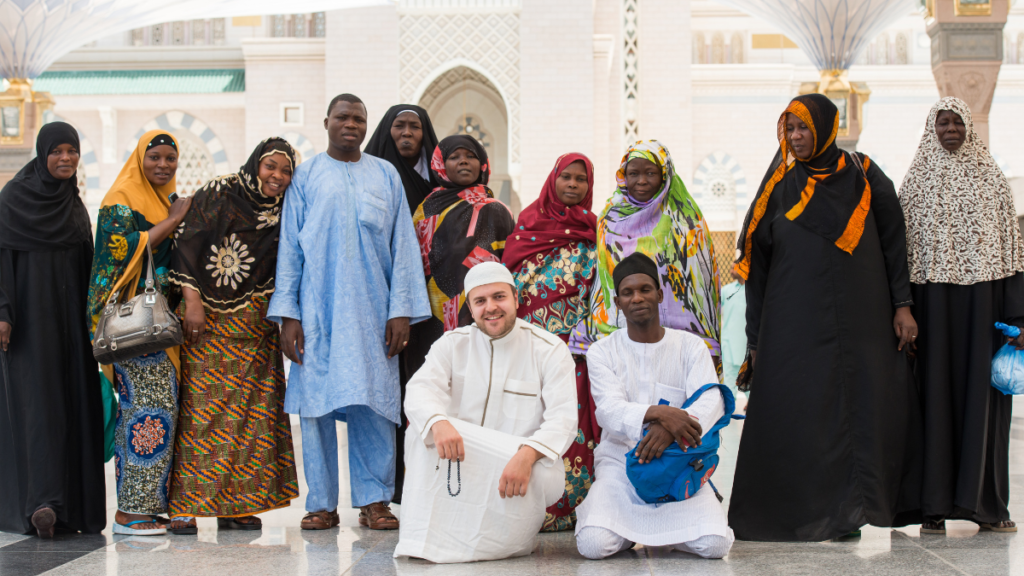The UAE has officially confirmed the list of Emiratis approved to perform Hajj during the 1447 AH / 2026 season, marking the start of a new cycle of preparations for families across the country. A total of 6,228 citizens have been selected, following an application period that saw more than 72,000 submissions- one of the highest totals recorded in recent years.
The announcement is significant, especially for families who have been waiting for their turn, as the pilgrimage remains deeply rooted in Emirati culture and tradition. For many, Hajj is a milestone that often involves community support, family discussions, and months of preparation once approval is received.
Record Demand for Hajj Reflects Growing Interest Across the UAE
This year’s numbers stand out for their scale. Over 72,000 Emiratis submitted applications, showing how demand continues to rise as digital processes make registration more accessible. Many residents, especially in places like Dubai, Abu Dhabi, and Sharjah, begin applying years in advance, hoping for the opportunity to embark on the journey.
The surge also reflects a broader shift among citizens who are prioritising spiritual experiences and planning major life events earlier. The response indicates that the community remains closely connected to the values and traditions surrounding Hajj, even as the country grows more digitally advanced and globally connected.
How the UAE Selected Pilgrims This Year

The General Authority of Islamic Affairs, Endowments, and Zakat used an automated electronic system to conduct the screening process. Instead of manual evaluation, the system applies consistent, predefined criteria to ensure fairness for every applicant.
Priority was given to groups who require additional consideration, including:
- Senior citizens
- Individuals with medical conditions supported by official reports
- Citizens who have applied repeatedly in previous years and were not selected
- First-time applicants
This structure ensures that those waiting longest, or those who need accommodation and support, receive a higher chance of approval.
Notifications and Early Preparation for Approved Pilgrims
Applicants selected for Hajj 2026 have already started receiving approval messages through text and digital channels. Early communication is essential because it allows pilgrims to begin the mandatory health checks, documentation, and travel arrangements required for the journey.
Many families treat this moment as a quiet celebration. It is common for relatives to gather, express gratitude, and help the selected pilgrim prepare for the months ahead. Younger family members often assist elders with digital forms, hospital appointments, and group coordination, making the process a shared experience.
Applications Automatically Carried Over for 2027
The Authority has clarified that all unselected applications from this year will be automatically transferred to the 1448 AH / 2027 season. Citizens do not need to reapply or resubmit documents, reducing stress and preventing yearly repetition.
For many who have been applying for several seasons, this update brings relief and reassurance. It also reflects the UAE’s broader shift toward more efficient digital governance, similar to other recent improvements in government services.
A Well-Organised Hajj Delegation for Emiratis
The UAE has built a strong reputation for managing one of the region’s most efficient and supportive Hajj delegations. Preparations include coordinated accommodation, transport, guidance, medical support, and on-ground assistance in Saudi Arabia.
These arrangements are especially important for senior pilgrims and first-time travellers. The delegation focuses on safety, comfort, and spiritual readiness, ensuring that Emiratis can focus on the essence of their pilgrimage instead of the complexities of travel.
Hajj’s Cultural and Emotional Significance in the UAE
Beyond the administrative process, the cultural weight of Hajj remains deeply felt across the seven emirates. Many Emirati households view approval as a major life event. Parents often hope to complete the pilgrimage before reaching an older age, while younger applicants see it as a spiritual milestone.
Conversations around preparation, health, and spiritual guidance shape daily routines for months. For those approved, the journey becomes a defining personal moment; for those carried over to next year, the anticipation remains equally meaningful.
A Growing Role for Digital Systems
The increasing volume of applications also highlights how digital platforms have reshaped access. With all Hajj procedures managed online, residents from every emirate—from Abu Dhabi to Fujairah—can apply easily, track their status, and communicate with authorities without visiting service centres.
This transformation mirrors nationwide efforts to modernise public services, improve accessibility, and reduce manual paperwork. The Hajj application portal stands as a strong example of how digitalisation can simplify deeply meaningful life events.
Hajj: the 2026 Journey
With thousands of approved pilgrims now entering the preparation phase, the coming months will involve medical assessments, coordination with licensed Hajj operators, document verification, and spiritual preparation. For those carried over to 2027, the extended timeline offers clarity and peace of mind.
As the UAE continues its preparations, the country remains committed to offering a safe, smooth, and spiritually enriching Hajj experience – one that reflects both its modern capabilities and longstanding cultural values.
Read More:
- Expo City Dubai unveils Expo Valley Views – a new green-living apartment community surrounded by nature – Social Kandura
- Free vs. Ticketed Fireworks Shows in Dubai for New Year’s Eve 2026 – Social Kandura
Follow Social Kandura for more updates on local news and things to do in Dubai and across the UAE.











